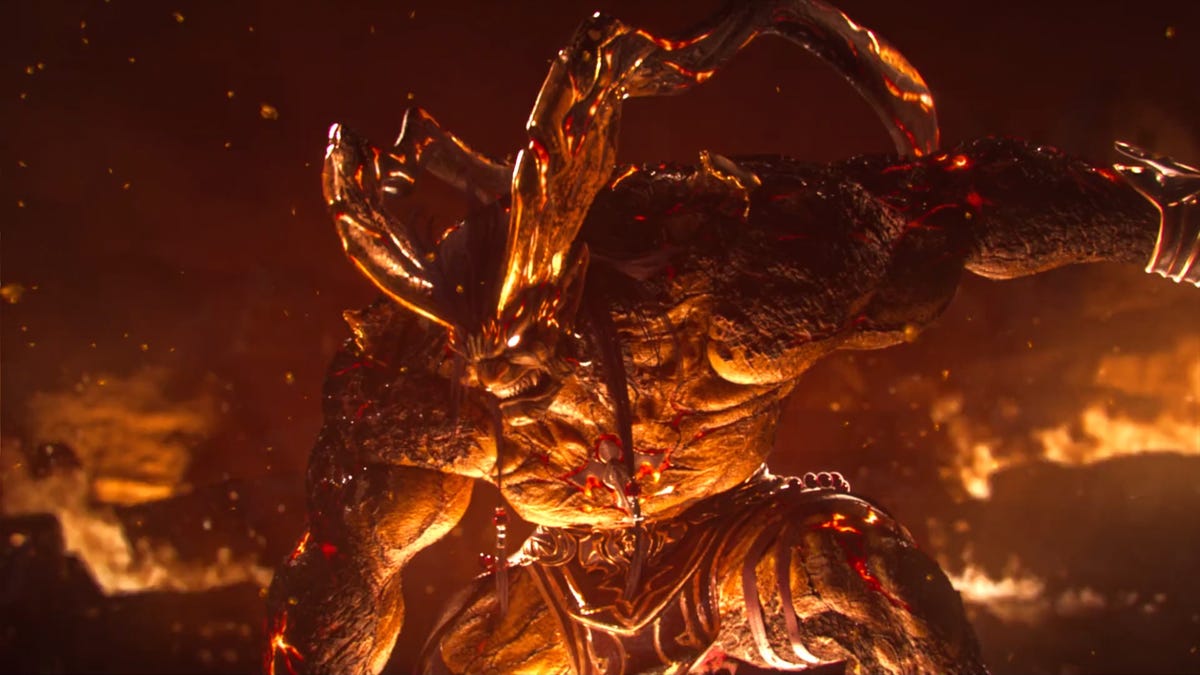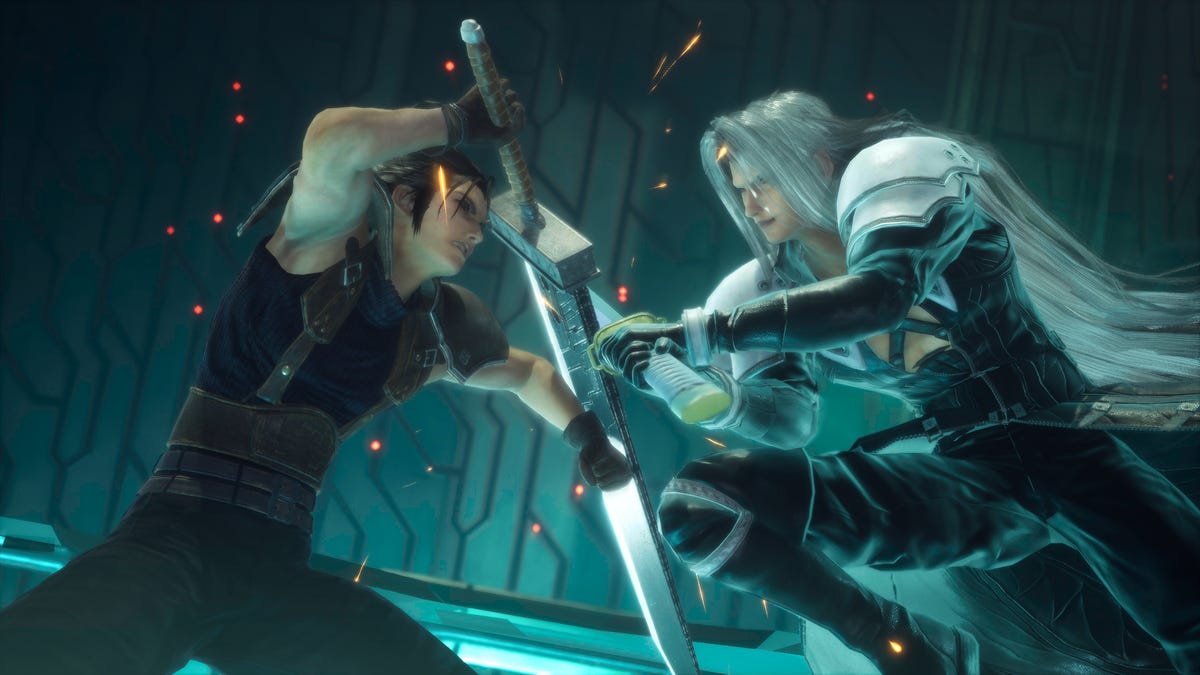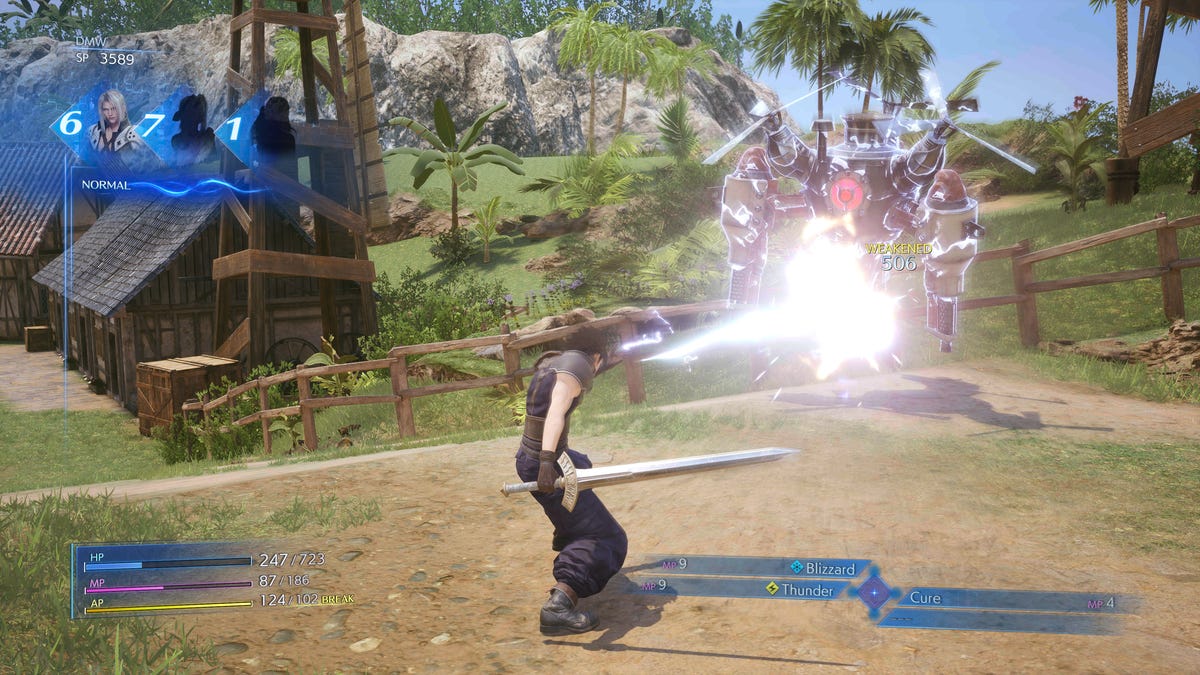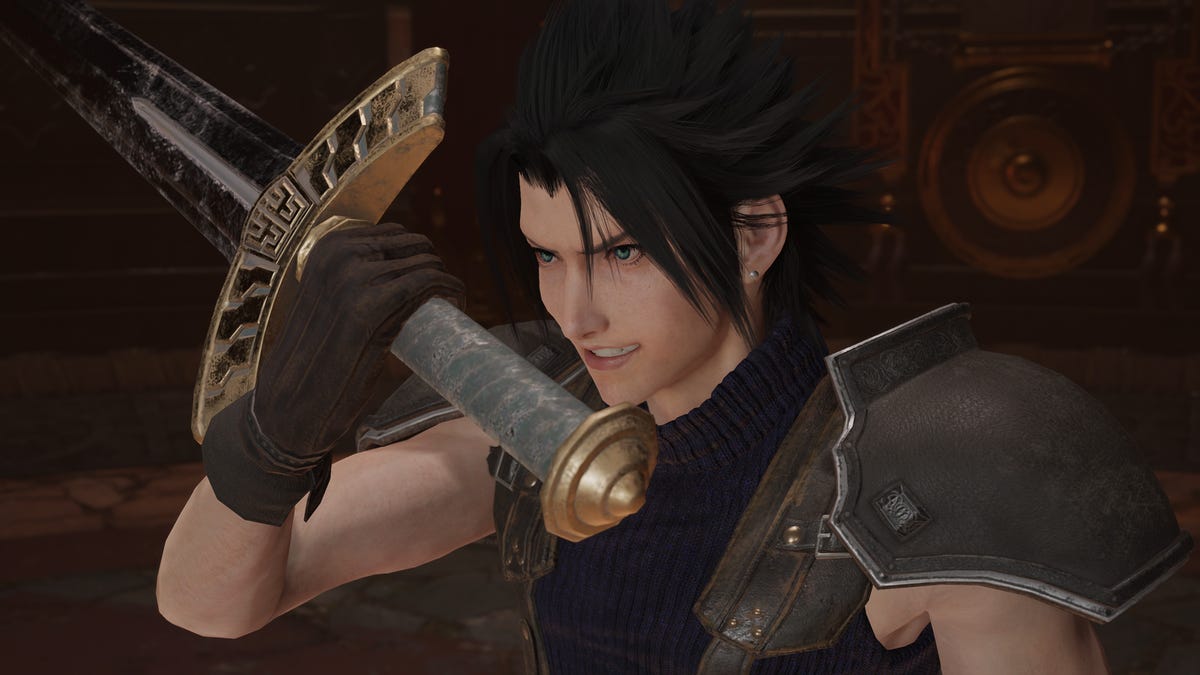Final Fantasy 7 fans expected to eat well back in the mid-noughties, as developer Square Enix released several spinoffs expanding the universe of the legendary 1997 PlayStation RPG. Unfortunately, most of the new stories — like PS2 shooter Dirge of Cerberus and CGI movie Advent Children — turned to be fast food compared to the delicious and nutritious meal that was Final Fantasy 7.
The sole exception was the excellent 2007 action-RPG Crisis Core. This prequel cast you in the role of Zack Fair, a character with a small but crucial role in Final Fantasy 7’s main story, and explored his career as a member of megacorporation Shinra’s Soldier paramilitary group.
It offered roughly 25 hours of main story gameplay, a solid chunk of side missions and an inevitable emotional gut-punch of an ending that seared itself into fans’ brains.
The problem: It was only on PlayStation Portable, aka the PSP, and remained marooned on Sony’s now-obsolete handheld for more than 15 years. However, after the 2020 Final Fantasy 7 Remake and its downloadable content hinted at Zack’s playing a bigger part in the upcoming Rebirth, Square Enix is finally letting a new generation of gamers dive into Crisis Core.
Crisis Core: Final Fantasy 7 Reunion hit PS4, PS5, Xbox One, Xbox Series X and S, Nintendo Switch and PC on Tuesday. I’ve played a chunk of the game on PS5, and found this remastered classic to be a nostalgic joy.
Initially, I thought this was just the PSP game with some modern flourishes — 3D character models, upgraded environments and the ability to finally play it on a massive TV screen (or mirror the handheld original on Switch). Some of the prerendered cutscenes aren’t as well remastered, with graphical artifacts occasionally marring the image.


Iconic summon Ifrit is the first of many you’ll encounter.
Square EnixAs I played, it became increasingly clear that Square Enix had made more subtle changes as well; developers have brought the combat closer to the Remake’s beautiful flow. Chaining physical, magical attacks and summoning god-like beings who perform super attacks feels natural and smooth — partially because all the modern systems’ controllers have more buttons to use than the PSP — making for a far more pleasant experience than it was in 2007.
You also have a new way to interrupt your most powerful enemies’ biggest attacks, by doing as much damage as possible when they’re charging up. It might not seem like a major addition, but it adds a layer of strategy to boss encounters you might otherwise have played defensively.
The slot machine-style Digital Mind Wave system that periodically gives you bonuses or summons an ally in combat remains inscrutable as ever — it also determines when Zack and his abilities level up. Rest assured that this isn’t random, so it seems that way you just can’t see how much experience points you have. Its link to Zack’s emotional effect also used to great narrative effect at a few key points.


Admittedly, Sephiroth becomes less chill after a certain point.
Square EnixAll the cutscenes are fully voice acted now — chunks of the original were text-only — with the Remake’s excellent cast back in their roles. That includes Superman & Lois’ Tyler Hoechlin as future villain Sephiroth, who’s a pretty chill (if a bit aloof) dude for much of this game.
However, for good or ill, Crisis Core Reunion is fundamentally the same game we got in 2007. It’s still divided into easily digestible story chapters where Zack goes out on assignments for Shinra, unlocking bite-size missions along the way — it can’t quite shake off its roots as a portable game designed for quick sessions.
It feels a little stop-start in the early hours, especially as the game’s various systems are introduced to you, but you’ll soon get into the groove.


The DMW on the top left of the screen will be your constant companion in battle.
Square EnixThe gameplay loop of doing a chapter, then blasting through a bunch of unlocked missions and talking to the various characters in the hub around Shinra headquarters is satisfying — similar to Mass Effect, another classic 2007 RPG. It’s basically a few rooms and streets, greatly enhanced by the game’s magnificent art direction (without the slow loading of the PSP version).
Zack is also an ultra-charismatic protagonist, and his enthusiasm is a breath of fresh air compared to Final Fantasy 7’s moody Cloud. Fans who know about the relationship between these two will find getting to know Zack particularly rewarding.
The other characters are a mixed bag — Zack’s Soldier mentor Angeal is so stiff that I practically drift off whenever he’s on screen, and main villain Genesis is a dorky Sephiroth wannabe. The voice actors do their best, but the writing around these two just isn’t compelling. However, Cloud and Aerith make up for it when they enter the story.
And seeing the early adventures of these gaming icons, and how Zack helped to shape them, is the best reason to play Crisis Core Reunion. It’s still a 2007 PSP game at heart (as evidenced by the beautiful mid-noughties flip phones), but Square Enix’s ambition made it one of the best games on that system. I’m so glad it’s not trapped there any more. It’s a game every Final Fantasy 7 fan needs to play before Rebirth arrives late next year.

